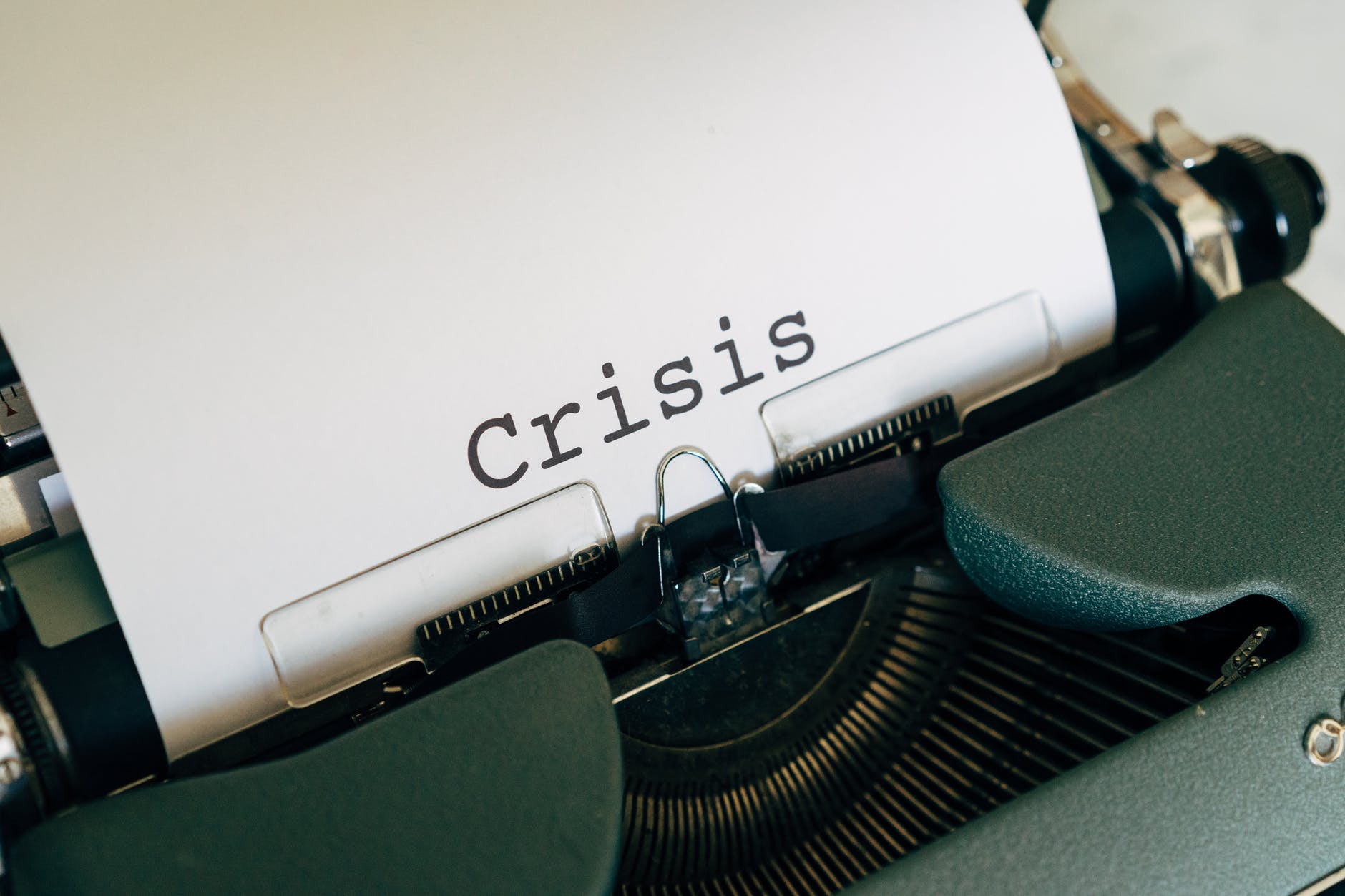We are all too familiar with the mid-life crisis. The men buy sports cars and wear a dead half animal on their head, whilst the women start juice cleanses, go on yoga retreats and begin redecorating. Even though this panic is experienced during a very stable point in someone’s life, they panic over the fear of hitting a certain milestone age.
THE ACCEPTABLE AND UNDERSTANDABLE QUARTER-LIFE CRISIS
However, silver foxes aren’t the only ones having a breakdown over their lives as many 20-somethings are facing the quarter-life crisis. An age where enthusiasm should be fuelling their souls, Gen Z’s and Millennials are throwing the towel in early as pressures begin to amount like no other.

WHAT IS A QUARTER-LIFE CRISIS?
Just like a Mid-Life Crisis, the Quarter-Life Crisis is steeped in the feelings of panic and anxiety to one’s own life. Experienced by those in their mid-twenties, it places a focus on one’s disheartenment towards their position in their life plan and wider society’s traditional life structure. Clinical psychologist, Alex Fowke described it as “a period of insecurity, doubt and disappointment surrounding your career, relationships and financial situation”. For a different perspective check out this article from Forbes.
The world has drastically changed and become more complex since the three above mentioned values (career, relationships, financial situation) were once sought out for. Many 20-something’s have entered the adult world in difficult times as the pandemic made it impossible to progress and truly enter the grown-up world.
Dubbed as the Boomerang and/or Peter Pan generation, many rites of passage into adulthood such as owning a house has been considerably delayed due to external factors. Over the past few years, ‘adulting’ has been extended, taking longer than it once did as many don’t own their own homes until their thirties. These fears met with the idea that time is going too quickly for the young adults has developed a paralysing fear amongst many, as they are unable to progress in their lives to their timely preferences, as well as the preferences of others around them.
ARE YOU HAVING A QUARTER-LIFE CRISIS?
So, how do you know if you’re having a quarter-life crisis? Well first off, you’re in your 20s, and secondly, you’re panicking about your job situation, whether or not you should or shouldn’t be in a relationship and how far off from a house deposit you are. Co-founder of Brazen Careerist, Penelope Trunk says “People think of their 20s as a competition”. Many of us will be jealous over people their age getting promotions, hitting relationship milestones or buying a house. If you’re having a quarter-life crisis you’ll begin to compare your life situation to peers of a similar age, thinking to yourself ‘should I be at the point where I can buy a house? And how did they even get to that point because I’m nowhere near’.
Whilst you may be feeling like a failure at this point, that’s not the case. According to a Washington D.C. psychologist, Nathan Gehlert, most sufferers of the quarter-life crisis are “highly driven and smart, but [they are] struggling because they feel they’re not achieving their potential or feeling they’re falling behind”. FOMO (fear of missing out) is a driving force within the quarter-life crisis as you question whether you’ll experience such things like owning a house or job prosperity at all.
A seemingly novel moment of panic within one’s life, your twenties are a defining time as you begin to gain independence and know your identity; and when that’s delayed and put to a halt, it can ignite some real emotions in ones self-belief, damaging their mental state, potentially leading to depression. It’s said there are four stages to the quarter-life crisis. The first is feeling trapped or in a limbo state. The second is separation/loneliness as they begin to disconnect due to the panic. The third is reflection, rediscovering what you desire and what motivates you. And the fourth is understanding; adopting a more positive outlook on life and realising that they want and need to do to get it.
Even though a quarter-life crisis is common, many like to keep these feelings to themselves in the fear that their friends may think they aren’t happy for them. What causes the panic is this undeniable sense of being judged by yourself, by your peers and by family. Whether it’s in a pressuring sense or a pitying way. Either isn’t good for the recipient and it only intensifies one’s quarter-life crisis.

HOW MODERN TIMES ARE HEIGHTENING THE PANIC
Over the space of three years, the world has been faced with a lot. An on-going pandemic, the rise of the cost of living, the potential of World War 3 and other deflating aspects of life. Reported by the Federal Reserve Board, 33 per cent of Gen-Zer’s and 25 per cent of Millennials lost a job during the pandemic. As a 23-year-old myself, I finished my university degree during the pandemic. I applied for an endless number of jobs during lockdown and when the world began to open again, I like so many other people, were met with a flood of competitors looking to kickstart their lives again.
Many of us Gen-Zer’s feel cheated due to the pandemic and current social climate as it seems many factors are pulling the rug from beneath our feet, preventing us from progressing. It can feel like our lives have become stagnant as we experienced the ball rolling very fast as we entered adulthood but then immediately halt, causing us to feel like we’re years behind our ideal life plan.
Especially within such a social media driven society, where we can see other people’s accomplishments, we cannot help ourselves but compare our life situation to others, some of who we may know but others are merely strangers. These platforms encourage a perfectionist lifestyle/culture, one which draws on very old traditions of having a job, relationship, children and a house. Society still holds these as the highest mark of life value, when really that’s not the case and especially when society is preventing us from achieving these bullets pointed dream life aspects. Dating apps are doing more damage than good, housing prices have never been higher and your met with a patronising ‘your time will come’ comment when your single or childless.
Society’s views and values have overpowered the importance of enjoyment, work/life balance and gaining the strength to say, ‘this isn’t what I want!’. It’s become fashionable and braggy to say you’ve been busy working long hours, doing this and that, and not actually taking time for yourself. A quarter life crisis is that voice in the back of your head telling you, you aren’t where you should be, yet it doesn’t take into account the external factors, similar to many of your peers. People’s modern-day priorities and values are beginning to shift, but some just can’t help but reflect those old timely markings of success onto the younger generation. We can hit those desired targets, but it’ll take us longer than they did.
TURNING THE QUARTER-LIFE CRISIS INTO A LEARNING CURVE
If you’re having a quarter-life crisis, like I am as I write this, it is completely justified. Looking at the state in which the world is in, why wouldn’t you panic? But just like all feelings, this one is temporary and you’re not the only one experiencing it. This panic is cause by the fear of the unknown of your own life and the fear of knowing other peoples’. No one really knows how to navigate through it, you just push through and learn as you go along – and I guess that’s what’s truly freeing about your 20’s, there isn’t any severe consequences to taking the time to figuring it out. It’s the time where you can trial and error – and this is a practice that needs to be encouraged more no matter what age. When you’re in your 40’s deciding to go back to education your seen as brave, but if you’re in your 20’s it’s sometimes seen as a comfort blanket (someone who doesn’t know what they’re doing with their life).
But how can people expect us Gen Z’s to simply progress from one stage to another without a bump in the road. Life has become a lot more complex compared to the 1980s. It’s about time we use the panic of the quarter life crisis to figure out what we really want for ourselves and find the strength to hold onto these newfound values when faced with judgemental outsiders. We need to refigure our identity and self-confidence by creating a self-defined level of success based on our values, lifestyles and time we can dedicate to the so called three pillars of success (finance, family and job). One pillar may stand taller than others, and everyone’s pillars may not stand the same and some may fall as we progress through life. The quarter life crisis is there to help us identify our individual pillars and challenge ourselves. They say Rome wasn’t built in a day, and neither are we.
Feeling down? Lean into joy more – Checkout this previous post – 4 Tips On The Science Of Happiness.







